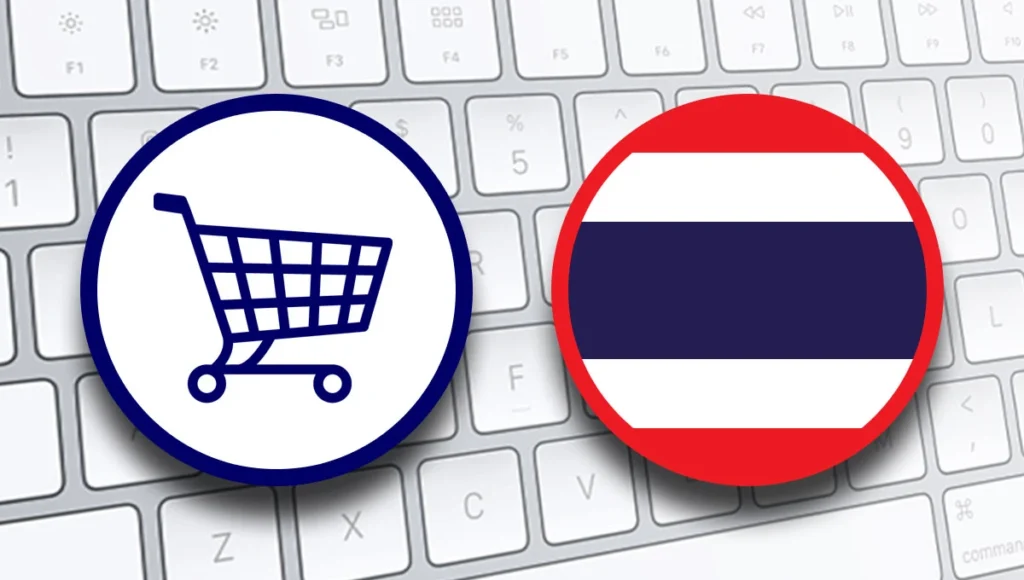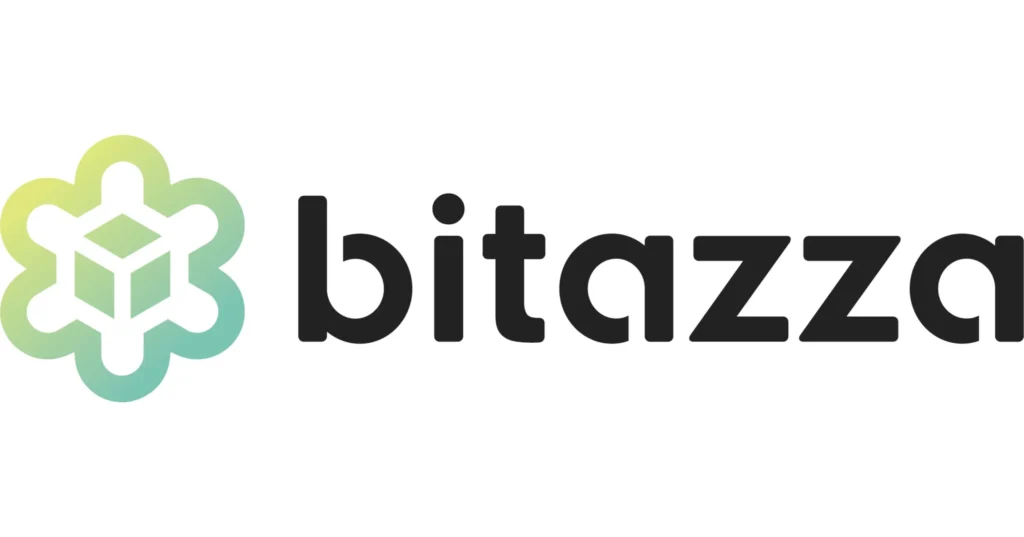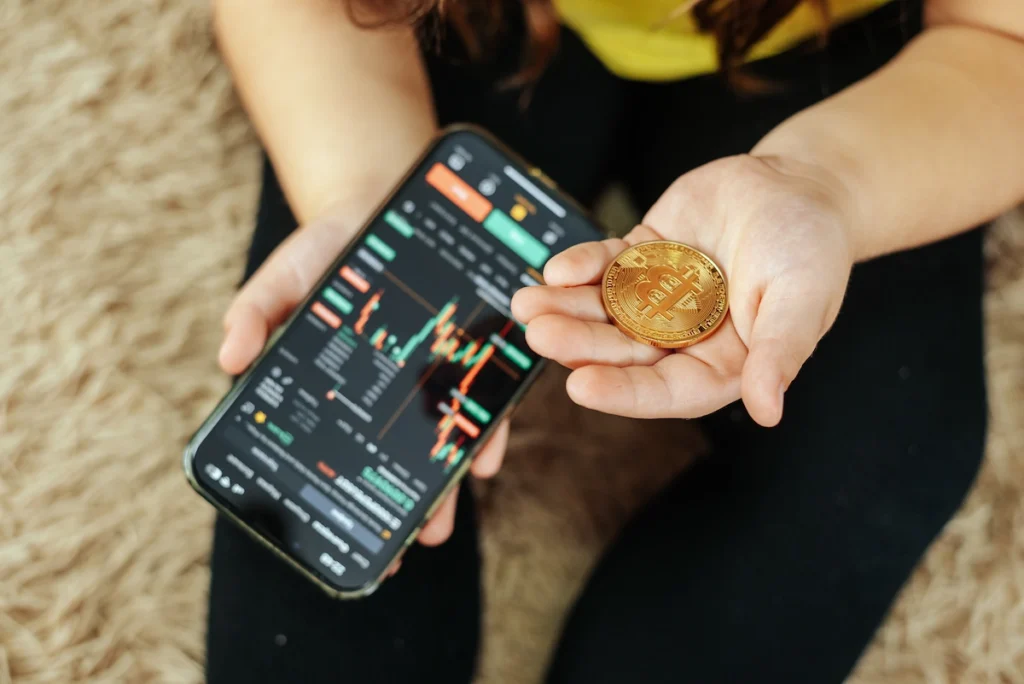It used to be niche. A few tech-forward shops here and there. But in 2025, something’s shifting—crypto e-commerce in Thailand is starting to catch on, especially among newer online retailers looking to stand out, cut costs, or cater to crypto-savvy buyers.
No, it’s not mainstream (yet). And you’re probably not checking out your Lazada cart with Bitcoin tomorrow. But dig a little deeper, and you’ll find a quiet momentum building under the surface.
Let’s unpack what’s happening—and why it might matter more than most people think.

Credit from : Ase/Anup
Crypto Acceptance Is No Longer “Too Early”—At Least Not for Everyone
The idea of using crypto in online shopping isn’t exactly new. But up until recently, it felt more like a futuristic dream than a real payment option. Fast forward to 2025, and we’re finally seeing a shift—not just in attitude, but in actual adoption.
According to a March 2025 report by eFinanceThai, platforms like Bitazza and Zipmex are now offering merchant services for Thai SMEs, allowing them to receive crypto payments directly or convert them instantly into baht (source: efinancethai.com).
That’s a game-changer. Suddenly, crypto’s not just a speculative asset. It’s a usable currency again—at least in certain corners of Thai e-commerce.

Credit from : Newswire
Subtle Growth: Crypto E-Commerce Thailand Isn’t Flashy, But It’s Real
Let’s be honest: there’s no explosion. No viral headlines about Thai mega-chains flipping to crypto overnight. What we’re seeing instead is… nuance.
- Small boutique stores—especially those selling niche goods like collectibles, NFTs, or wellness products—are quietly adding crypto as a payment method.
- Social commerce sellers on platforms like Line Shop or IG are experimenting with direct wallet-to-wallet transfers using USDT or BTC.
- Some Shopify-based stores are enabling crypto checkouts through third-party plugins tied to Thai crypto wallets.

One Thai beauty brand, highlighted on my-best Thailand, even offered early-bird promotions for crypto users in early 2025. The owner? She says it helped them tap into “a curious new crowd” that wouldn’t have otherwise visited their store.
So it’s not big. But it’s moving.
What’s Driving It? Lower Fees, Faster Transfers, and Gen Z Curiosity
So—why now?
Here are a few real-world reasons:
- Lower transaction costs: Credit card processors and payment gateways often charge 2.5–3.5%. With crypto, especially stablecoins on Layer 2 networks (like USDT on Arbitrum or BNB Chain), fees can be slashed to less than 1%. For bootstrapped Thai shops, that math makes sense.
- Faster international reach: For shops catering to overseas Thai diaspora or crypto users in places like Singapore, Japan, or Vietnam, crypto provides borderless payments that settle in minutes—no SWIFT delays, no bank cutoffs.
- Crypto-native demand: According to The Standard, a growing number of Thai consumers—especially under 30—are comfortable using wallets like Bitkub NEXT or MetaMask. Some even prefer it, citing privacy, ease, and the “future-forward” vibe.
The mix of lower friction, digital-savvy users, and global payment rails? It’s a sweet spot for risk-tolerant e-commerce founders.

Credit from : Logosworld
Subheading with Focus Keyword: Crypto E-Commerce Thailand vs Traditional Payment Gateways
Let’s break it down. Here’s how crypto compares with more traditional systems Thai shops rely on:
| Feature | Traditional (Omise, 2C2P, etc.) | Crypto (BTC, USDT, BNB) |
|---|---|---|
| Transaction Fees | 2.5–3.5% | 0.1–1% |
| Settlement Time | 1–3 days | Instant or under 5 min |
| Chargebacks | Common | Impossible |
| Volatility Risk | None | Depends on token used |
| Adoption Complexity | Easy with local support | Moderate (tech setup) |
There’s no denying: crypto comes with a bit more setup hassle. But for shops that are tired of slow settlements and fees stacking up—it’s becoming a real alternative.
So… Is Crypto Checkout the Future for Thai Online Stores?
Short answer? Maybe.
Longer answer? It depends who you ask.
Plenty of mainstream merchants are still waiting on the sidelines. Some say the legal gray area is too murky. Others worry about wallet scams or customer confusion. That said, the Thai SEC has gradually been softening its stance—encouraging innovation while tightening up bad actors.
For smaller players, especially those who can move fast and adapt, crypto might be less of a risk and more of a differentiator.
Plus, with more payment providers jumping into the mix—think stablecoin settlement layers, wallet integrations, and custodial services—we might be looking at an infrastructure moment similar to where e-wallets were in 2016.

Credit from : Medcom
The Future of Crypto E-Commerce Thailand May Be Built Quietly, Not Loudly
Crypto isn’t replacing baht anytime soon. But it doesn’t have to.
What’s more likely is that crypto becomes just another option at checkout—especially in stores that cater to niche markets, tech-savvy users, or global buyers.
And let’s face it: the next generation of shoppers already lives in their phones, swaps ETH like it’s candy, and expects instant everything. Crypto checkout just fits their rhythm.
Will every Thai e-commerce shop embrace it? Probably not. But some will—and those early adopters could carve out real market share in a surprisingly short time.
Final Thoughts: Crypto E-Commerce Thailand Isn’t a Trend—It’s a Quiet Shift
At first glance, this whole shift toward crypto e-commerce in Thailand might seem small. Maybe even insignificant.
But history shows us: the biggest transformations don’t always start loud. Sometimes they start with a few quiet adopters, a few early wins, and the right timing.
2025 might be just that moment.
So if you run a Thai online shop—or you’re thinking of starting one—maybe it’s worth asking: what would it take to accept crypto? Because sooner or later, someone in your space probably will.





